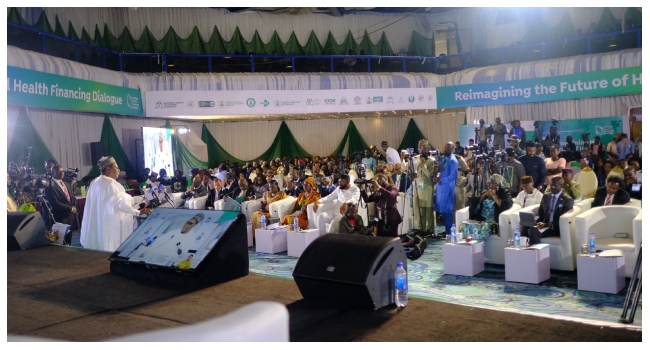The Federal Government has reiterated the need for Nigerians in rural areas to have better access to vaccines for medical conditions.
Speaking on the final day of the National Health Financing Policy Dialogue in Abuja on Thursday, the Coordinating Minister of Health and Social Welfare, Muhammad Pate, also highlighted Nigeria’s strides in health financing over the last two years under President Bola Tinubu’s administration.
“All levels of government are key, the Federal Government, states, and local governments, and we take a lead in financing and strengthening our health system at a decisive moment when we are seeing the winds of change in the global financing landscape,” he said.
“The last eight months certainly have presented us with an important opportunity for a reset in the face of massive challenges.
READ ALSO: Abia Govt Sacks Six Civil Servants Over Fraud
“If we stop back and think, there are many women in this country who, without the ability to afford healthcare when they are pregnant in rural areas, will struggle to get the care they need. They risk losing their lives.
“Children who lose their lives because they have not been able access to vaccines to prevent measles. It is about people in remote areas – traders, farmers, teachers, policemen, military, everyone of us should be able to afford life-saving interventions.
“But at the same time, the challenges we face and the fiscal reality is that we have to forge a narrative that is uniquely ours.”

The minister called on states to establish health financing scorecards to track funding commitments and results, and stressed the need for locally relevant research to guide policy decisions.
He also highlighted lessons from other countries, such as China, where increased public health financing reduced out-of-pocket spending and advanced universal coverage.
The dialogue, which commenced on September 1, brought together policymakers, civil society actors, private-sector players, and development partners to translate commitments into practical strategies for sustainable health-care funding.
Themed “Reimagining the Future of Health Financing in Nigeria,” the dialogue sought to generate commitments to reduce out-of-pocket spending, strengthen accountability, and boost domestic investment in the health sector.


